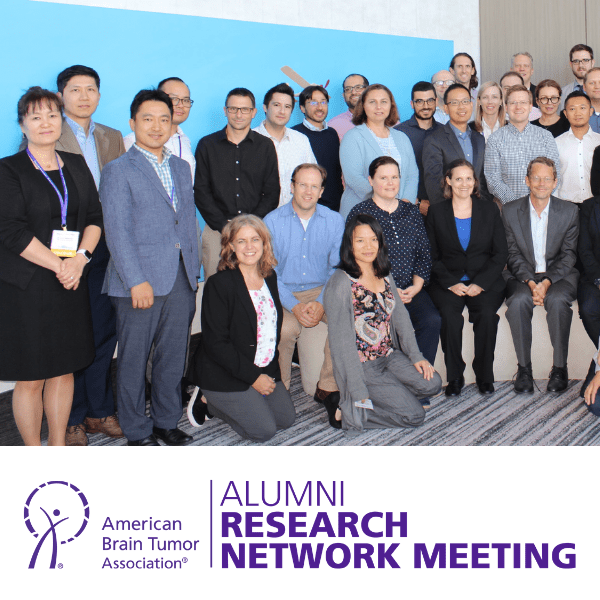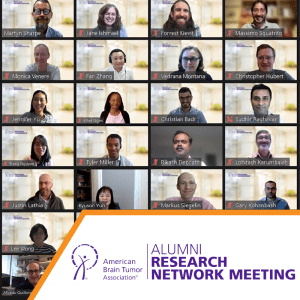
Nearly 60 researchers from 22 states and three countries, including Canada, Spain and as far as Australia, joined the virtual American Brain Tumor Association Alumni Research Network (AARN) 9th Annual Meeting to discuss the most pressing issues in brain tumor research.
The goal of this year’s meeting focused on emerging areas of potential treatment for brain tumors, with the goal of advancing the field and improve outcomes for brain tumor patients.
Key highlights of the AARN Annual Meeting, include a special presentation by guest speaker, Luis Parada, PhD at Memorial Sloan Kettering Cancer Center, on targeting cancer stem cells, which are most resistant to standard therapies. Additionally, several leaders in the field of brain tumor research discussed new studies on cancer metabolism and epigenetics (the study of how particular processes or variables activate or deactivate certain genes, particularly, in the way our bodies respond to brain tumors). A hallmark of AARN’s team spirit was seen at a lively discussion of successful grant writing strategies to achieve additional funding for brain tumor research – an important endeavor of prolific researchers.
The AARN Annual Meeting brings together the talented pool of current and new ABTA grant recipients. This year, due to the COVID-19 pandemic, the meeting was held virtually. But this virtual setting did not deter attendees from collaborating and brainstorming ways to move the brain tumor research field forward.
“While the members would have preferred an in-person meeting, they were grateful for the virtual opportunity to reconnect with each other and meet new AARN members,” said Heather Calderone, PhD, director, Research & Grants at the ABTA.
Co-Chairs Highlight Promising Milestones in Brain Tumor Research
New this year, AARN Annual Meeting co-chairs Dohoon Kim, PhD of the University of Massachusetts Medical School and Jane Ishmael, PhD of Oregon State University appeared on ABTA Facebook Live and presented key milestones in brain tumor research. This presentation highlights the progress and promise in sustained and innovative scientific study to effectively treat and improve quality of life for brain tumor patients.
Learn more about the ABTA Research program.





















